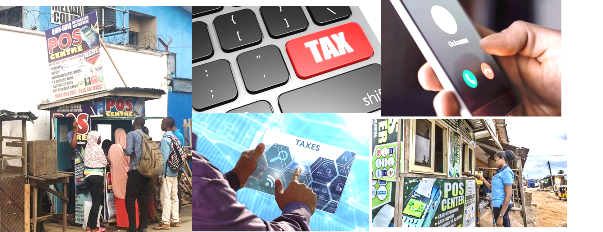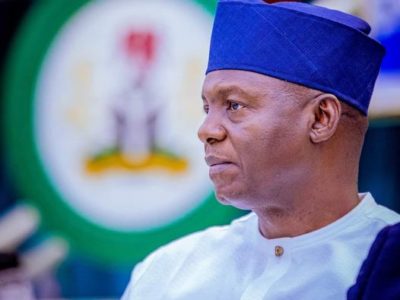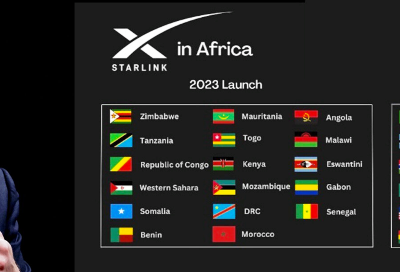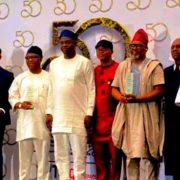Matters eRising with Olusegun Oruame
Government is broke and desperately needs money to keep afloat. Is there any aspect of public sector (not directly expose to commercial activities) that is not broke?
In the face of dwindling national income and rising debts it is increasingly becoming difficult for government to meet its obligations including paying salaries. Bankruptcy hangs over government and governance and the statistics on the state of affairs are frighteningly depressing.
National income has shrunk considerably and its impact spread across our national life. The African Development Bank (AfDB) is not so optimistic about the country’s economy and so too are many experts. In fact, the AfDB economic outlook says “growth will decelerate, averaging 3.2% during 2022– 23, due to persistent low oil production and rising insecurity. Inflation is projected to remain elevated at 17 % in 2022 and to stay above pre-pandemic levels in 2023, fueled mainly by rising food, diesel, and gas prices and persistent supply disruptions.”
RELATED: Nigeria to start implementing telecoms and beverage taxes in 2023
Even in the face of this pathetic state of affairs, government is still lustfully incurring very high overheads – a clear manifestation of absence of fiscal discipline and an indication that the economy has been managed more to consume and not to create.
Nigeria’s sick economy needs oxygen
The economy is literally on a sick bed and urgently needs oxygen to aid its recovery. To go by the AfDB’s and World Bank picture, Nigeria’s economy grew by 3.6% in 2021 from a 1.8% contraction in 2020, Annual average inflation stood at 17.0% in 2021 against 13.2%. On the Gross Domestic Product (GDP) side, it has not been an exciting ride, Nigeria’s annual real GDP growth rate, which averaged 7% from 2000 to 2014, fell to 2.7% in 2015 and to -1.6% in 2016. Growth rebounded to 0.8% in 2017, 1.9%in 2018, and then plateaued at 2% percent in 2019 where it has flattened out since then to reflect the negative impact of COVID-19 and other challenges from 2020 till date.
Nigeria is faced with serious fiscal difficulties, shrinking revenues and mounting debts that must be serviced yearly and for which a Daniel is unlikely to come to judgment in the face of Shylock-creditors. Loan servicing eats close to 90% of the national budget and makes the budget watery and hollow.
Faced with all these, the challenges of underdevelopment are not about to be addressed. They are about to grow with spiral terrifying consequences – the type that ignited the Arab Spring on the street of Tunis with just an ordinary hawker, who in hunger and frustration, set the revolution on by self-immolation.
Government will be pretending to say it is not anxious and not fretful over the consequences of a national vault that is nearly empty in a pre-election season full of anger, disappointments and bitterness.
Governors’ 33 recommendations to rescue an economy in rags
In fact, the 36 states’ governments met not too long ago under the aegis of the Nigeria Governors’ Forum (NGF) and drew up for Mr. President, 33-point recommendations to save the economy from collapse.
Most of the proposal focused on getting government cut down its over bloated size; ensuring the Central Bank of Nigeria (CBN) does its job of monetary control properly; cutting down on unnecessary overheads; among several other measures.
Curiously, the governors want Abuja to introduce a flat 3% Federal Personal Income Tax (FPIT) on all Nigerians earning more than N30,000 per month while those earning less than N30, 000 per month, whether employed or not, including farmers and traders be compelled to pay a monthly FPIT of N100.
As good as the recommendations appear, it would seem the rich and those in government are perpetually focused on ensuring joy does not come to the impoverished. Why levy hungry, jobless citizens?
Nailing telecoms on the cross to salvage Nigeria
It is true that there cannot be an ‘Open Sesame’ formula to redeeming Nigeria and government must, by all means, raise money to avoid total collapse and so it is rightly seeking to squeeze out funds through additional taxation and the telecoms sector has come naturally under its focus.
The telecoms sector despite Nigeria’s low country perception has not been doing badly. Foreign investment into the sector is one of the highest the country has recorded in 72 months to rapidly close the gap clusters from as high as 217 to 114 in a way that has further made telecom services accessible to millions of Nigerians.
There are now no less than 53,460 3G and 4G Base Transceiver Stations (BTS) in the country. It was about 30,000 in 2015 while fibre optics deployments have increased from 47,000 kilometers to 54,725 kilometers within the same period.
Like the telecom regulator, Prof Umar Garba Danbatta, has reiterated, you have a sector that has significantly contributed to “GDP that grew from 8.5 per cent in the 4th quarter of 2015 to 12.61 in the 4th quarter of 2021, as the sector also attracted over $2 billion in foreign direct investment over the period.”
For telecoms, success is become Albatross
Yes! The telecoms industry is the poster child of success, that totem of hope under a climate of economic gloom. Unfortunately too, its success is become its Albatross. There is considerable attention on the sector by government not necessarily to positively grow it but to squeeze it repeatedly and ravenously not minding that it could be potentially squeezed to extinction.
This is why, for good reasons, the Minister of the Communications and Digital Economy, Prof. Isa Ali Ibrahim Pantami, is worried and has challenged the decision to implement the telecoms tax influenced by the Ministry of Finance, Budget and National Planning led by Dr. Zainab Shamsuna Ahmed.
The telecom sector is apprehensive. For a sector that has grown in leaps and bounds in spite of several challenges, the 5% tax is an additional burden. It becomes more worrisome to stakeholders considering the rising cost of doing telecoms business just as is the case in other sectors.
The cost of producing a millisecond of voice or a byte of data is far higher in Nigeria than in many other countries because government policies and the general economic climate including high cost of diesel have connived to ensure operators can only provide services at higher costs.
With more than 53,460 3G and 4G BTS deployed nationwide to keep the network functional 24/7, telecom infrastructure owners need diesel which is now scarce and costly by over 5000% to feed at least two power generators for a single BTS. Do the mathematics; the cost of producing one minute of call in Lagos is far higher than in Accra. Consumers ultimately bear this cost.
A harassed telecoms sector
The industry is still contending with a myriad of taxes, levies across the states and is just beginning to get succor after decades of battling issues around right of way (RoW) in all the 36 states.
Then, there is the issue of rising insecurity. The increasing cases of vandalisation of telecoms infrastructure country-wide and risk to safety of telecoms personnel. It is not getting any better for network operators.
Earlier in the year, operators suggested increasing tariffs by up to 40% on telecoms services to reflect market realities. The telecoms regulatory agency turned down the request. On the surface, it would appear the Nigerian Communications Commission (NCC) is more concerned about the possible negative impact of the tariff increase on consumers and other sectors than the genuine challenges of the operators.
But in a deeper sense, the regulator was not going to allow inflation of an already vulnerable economy and not within a sector directly under its purview.
As it is now, the finance ministry, hungry for money and desperate to close budget gaps, has gotten the presidential nod to execute what the telecoms regulator was not amenable to. Has the chicken come to roost for already overwhelmed operators and consumers? Minister Pantami thinks so. He does not buy the suasion to further tax the sector.
Taxing the poor, pampering the rich
Telecoms will ultimately get additionally taxed. For the ministry of finance, there is no going back However, what is somewhat perplexing is why government is looking less at taxing the super-rich and the well-to-do or the army of ‘wanna-be’in the realm of exaggerated wealth for which many Nigerians are known. Why should luxury tax applies only to Fanta and Pepsi or Seven Up that the poor man struggles to drink or the Trophy beer many poor people use to drown away the evil visited upon them by a government that seeks to further distance itself from the pains of the poor?
Why leave taxing the luxury homes in Abuja, Lagos, Port Harcourt, Kaduna and elsewhere in the country; the luxury vehicles and super-bikes; and the general activities of the rich to go after the throats of the poor?
While government dither over creating right environment for an innovative economy, the telecoms sector has inspired other industries to become more economically dynamic and to help foster a new generation of new ventures and entrepreneurs – all private sector led and all definers of a greater Nigeria.
Have you ever used the services of a fintech entrepreneur providing unique financial services driven by telecom infrastructures; or the thousands of Nigerians operating POS services (including that barber and Mama Put); or those new breed entrepreneurs delivering agricultural and other products directly to your home via orders made through Whatsapp or other social media handles in a redefinition of low-profile eCommerce?
These are among the people that will suffer the direct impact of the telecoms tax while the property owner in Abuja or owner of posh sport car continue to luxuriate in an economic bubble underwritten by a broke country.
Government must get more creative at expanding its tax frontiers. When you introduce property levies, it is likely that owners of multiple properties will rather lower the cost of rent to ensure the properties are not empty if only to raise enough money in order to pay the statutory annual levies.
Why is it easier to levy the poor than the luxurious pleasure of the super-rich? Government has an obligation to protect the poor; and not over-burden an industry that directly impacts on their wellbeing. Government has a duty to tax but it must rethink its tax model to not kill the donkey that helps in plowing the field. The telecoms sector deserves to be supported and promoted not taxed to death. Certainly not at a time like this.































